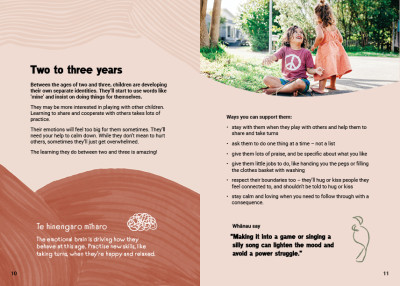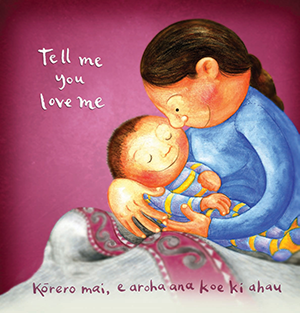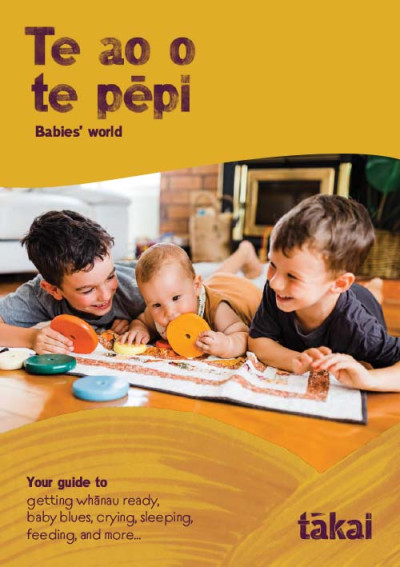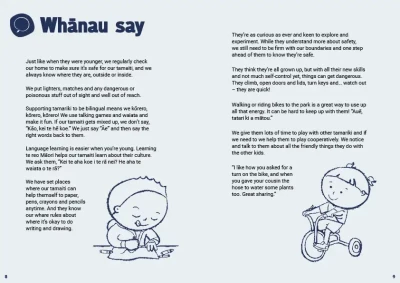
I do it – Building independence
The child will want to do more and more. Whānau can encourage this growing independence without seeming to control it.
At this stage, a young child will want to do more and more. ‘I do it … I do it’ is a common statement heard from children in this age group. Even if they don’t yet say the words, their behaviour will tell parents what they are thinking.
'I do it'
On page 9 of Whakatipu Te Kōhuri 2, whānau say, ‘Our tamaiti is showing signs of their own mana motuhake, wanting to make little decisions and do things for themself. They let us know if they want help and we remember to praise them for trying hard.’
Children of this age can manage some things themselves and will struggle with others. The challenge is to work out ways to help without it resulting in a meltdown.
Doing things around the house
Practising putting on ‘dress ups’ can help, especially if the clothes are a little too big so they can be put on or taken off easily.
Sorting or putting washing away, putting groceries away, setting the table and washing vegetables are all things they can manage with only a little support.
Closely related to children saying ‘I do it’ is ‘Mine’.
Between the ages of 2 and 3, children are developing their own separate identities. They’ll start to use words like “mine” and insist on doing things for themselves.
Try an activity
Chalk fun
An easy and fun activity for tamariki to independently lead. It's an opportunity for lots of kōrero about what they’re doing and why, which will extend their vocabulary and ability to express themselves.
Learning to play with others
Even though they may want to play with other children, they still have to learn the necessary social skills to share and play together successfully. This takes practice and support from their whānau.
During this stage of growing independence, a child understands that they’re a separate being from their parents and will want to make decisions for themselves. They have limited understanding or regard for danger, so they still need the adults around them to supervise and intervene where necessary, even though they may not always appreciate this.
When parents understand this is a normal developmental stage, it can help them cope with their child’s behaviours. Gentle support for this emerging independence will help the child learn to manage their emotions and reinforce their developing sense of confidence and competence.
Kia kaha whānau!















